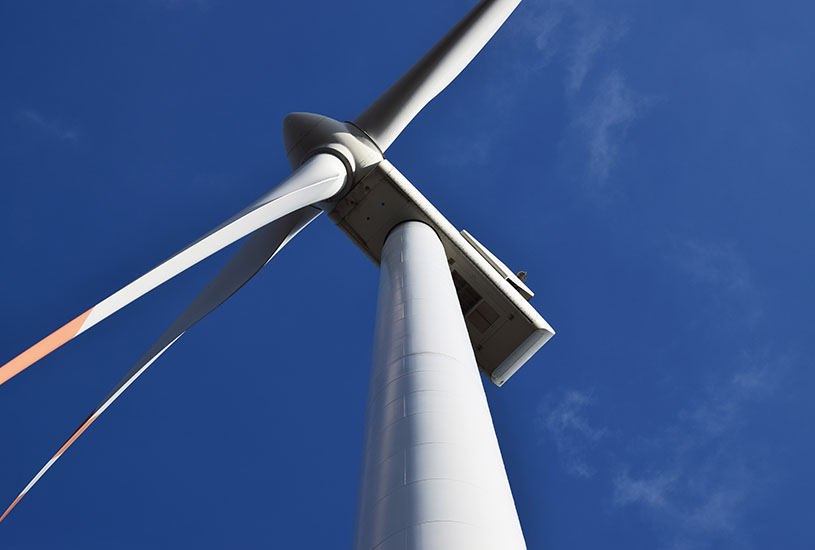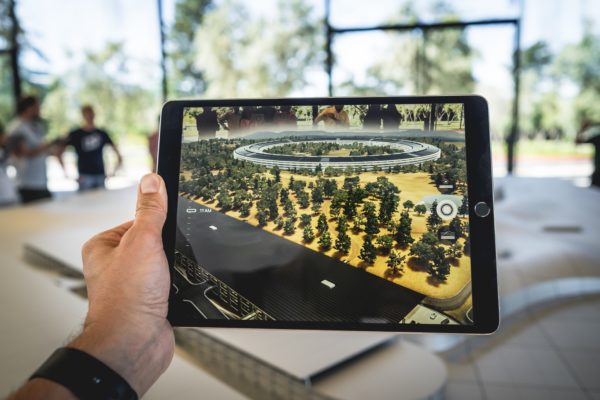Deakin has welcomed its inclusion in a new Co-operative Research Centre that will support the development of technology, skills and infrastructure to deliver affordable, reliable and clean future energy.
Deakin University will be one of six universities involved in the $91 million Future Fuels Co-operative Research Centre (CRC), announced today by the Assistant Minister for Science, Jobs and Innovation, Senator the Hon Zed Seselja.
The Federal Government is establishing the CRC to enable Australia’s multibillion dollar energy industry to transition to clean fuels, benefitting Australia’s electricity, transport, agriculture, mining, building and industrial sectors. It will establish a partnership between over 50 companies, six universities, the energy market operator and two regulators.
The partners will work together to create the technology, skills and infrastructure to produce, store and deliver clean, reliable, secure and affordable future energy, delivered through new and repurposed infrastructure.
Deakin’s Deputy Vice-Chancellor (Research) Professor Peter Hodgson has welcomed the announcement.
“Deakin will contribute significantly to this CRC, supporting the development of affordable, reliable and low-carbon energy solutions for Australia,” Professor Hodgson said.
“Our involvement with the new CRC will build on the work of the current Energy Pipelines CRC, of which Deakin is a member, and add new dimensions, particularly in two of the new CRC’s three priority areas: Network Lifecycle Management; and Future Fuel Technologies, Systems and Markets.
“Researchers at our Institute for Frontier Materials and through Deakin Energy are undertaking world-leading research in pipeline maintenance and durability, corrosion, metals and steels, as well as in energy storage and renewable energy system development. Our pipeline research has focussed on coating, testing and understanding corrosion behaviour and has achieved fundamental understandings to support Australia’s oil and gas industries.
“In the energy sector, our researchers are accelerating the prototyping and commercialisation of energy storage technologies and working with some of the world’s leading companies, including AusNet Services, to establish platforms for developing renewable energy systems and enhancing the interface between critical energy generation, storage and delivery components.
[testimonial_text]The announcement is also great news for Geelong, which is a base for a significant part of Deakin’s research, as we expect there will be spin-offs for local industry development in the future.[/testimonial_text]
[testimonial_picture name=”Professor Peter Hodgson” details=”Deputy Vice-Chancellor (Research)”]
 [/testimonial_picture]
[/testimonial_picture]The Future Fuels CRC will assist Australia to meet its COP21 Paris Agreement obligations to develop affordable, reliable, low carbon energy fuels and solutions for its total energy needs. It will focus on developing solutions for facilitating the provision of future gaseous and liquid fuels for use in homes, businesses, transport and industrial sectors, which account for 40 per cent of Australia’s energy market.
It will explore opportunities to adapt existing gas infrastructure for the production, transport, storage and use of more sustainable “future fuels” such as hydrogen, bio-gas and liquid derivatives like ammonia and methanol that can meet a significant part of local demand and generate export opportunities. Gas infrastructure can also increase the utilisation of renewable generation by storing clean gas manufactured during periods of surplus generation for later use.
The Future Fuels CRC will address issues that are currently hampering large-scale deployment of future fuels through three integrated research programs:
Future Fuel Technologies, Systems and Markets
This research program addresses technical, policy and commercial barriers to the increased utilisation of new low-carbon fuels and aims to accelerate development of production technologies and end-use applications. It includes five linked research themes:
- Integrated planning of fuel systems production, delivery and use
- Techno-economic modelling of fuel production processes and supply chains
- Accelerated development of early stage, breakthrough technologies
- Compatibility of end user equipment with future fuels
- Applied research support of ‘Power to Gas’ demonstration projects
Social Acceptance, Public Safety and Security of Supply
This program studies the social and policy context within which future fuels technology and infrastructure operates. Public understanding and acceptance of major infrastructure investments, and policy to support that infrastructure, benefits from early and effective engagement with communities impacted both directly and indirectly. Aspects of the program specifically address how best to engage with the community to support good decision-making.
Network Lifecycle Management
Vital components of the energy transfer infrastructure will be studied from concept to end-of-life in this research program. Research will address novel materials, design, construction, operations and maintenance for new infrastructure, and issues associated with re-purposing or decommissioning of existing gas networks that aren’t suitable for future fuels. This program has four interrelated research themes:
- Material properties and performance
- Safe and efficient design, construction and operation of future fuel infrastructure
- Smart monitoring, data management and asset condition prediction
- Advanced infrastructure repair and protection systems
Published by Deakin Research on 12 April 2018



